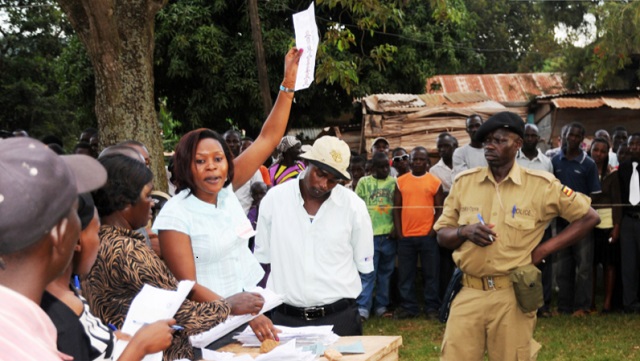
Kampala, Uganda | THE INDEPENDENT | Political aspirations of women and youths in Uganda are largely shattered by the high cost of contesting for elective offices. The conclusion is based on findings of a research that was conducted by the Westminster Foundation for Democracy, the Public Policy Institute and the Netherlands Institute for Multiparty Democracy.
Researchers from the three think-tanks sampled Uganda’s past election cycles and found for instance that a person seeking to join parliament required an average of 465 million Shillings in 2016 to facilitate the campaign process, while those seeking district leadership positions required at least 275 million Shillings.
This means that a parliamentary candidate spends up to 210 times, the average income of an ordinary Ugandan on campaigns. Many who cannot afford the expense are eliminated in the process, leaving the race to anyone willing to spend.
The report titled the impact of the cost of politics on inclusive political participation in Uganda further reveals that there was a huge regional split on how candidates spent money on campaigns. For example, those running for office in the central and western regions spend significantly more than their counterparts in eastern and northern regions.
The report adds that on top of the campaign expense, leaders spend huge sums of money on administration. Their findings show that there are legislators whose expenses go to the highs of 48 million Shillings a month, on office rent and salaries for staffs in their constituencies.
Frank Rusa, the Executive Director of the Netherlands Institute of Multiparty Democracy- Uganda says that the trend creates a risky path in Uganda’s pursuit for democracy because more women and young people are getting demoralized and distancing themselves from politics.
But Norbert Mao, the President of the Democratic Party mocked some of the findings, especially concerning monthly office expenditure. Mao noted that this finding and many others are not based on fact and reality and that some of them might have been influenced by wrongly selected samples.
He added that the main reason why politics is becoming more expensive is that most Ugandans who join it have nothing else to do as a job, but look at those political offices as their only source of earning for survival.
Asuman Basalirwa, the President of the Justice Forum opined that since legislators have more or less become ducts of service delivery across all sectors in the country, they should be granted more money to play that role where the executive falls short.
He added that if campaign costs are to be reduced, the government should be pushed harder to increase funding for local government’s so that their people stop looking up to MP’s as their bailouts.
Meanwhile, the report also finds that four out of five male candidates secured loans to finance their campaigns compared with just under one out of five women. Over two-thirds of the male candidates also secured funding from their political parties compared to under one-third of female candidates.
*****
URN
 The Independent Uganda: You get the Truth we Pay the Price
The Independent Uganda: You get the Truth we Pay the Price





